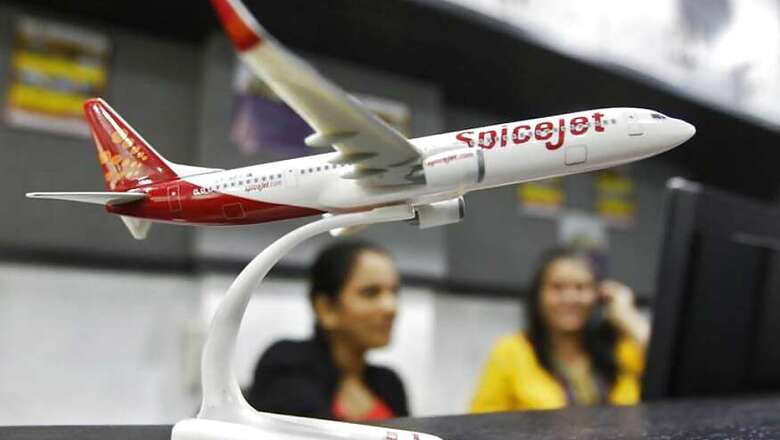
views
New Delhi: Amid ongoing tensions between New Delhi and Islamabad, a Kabul-bound SpiceJet flight was intercepted by Pakistani fighter jets in their airspace last month, said a senior government official on Thursday.
The incident came in the backdrop of tension between India and Pakistan that had escalated after the Indian government revoked Jammu and Kashmir's special status on August 5 and bifurcated it into Union Territories.
The incident took place on September 23 when two Pakistani F-16 jets flanked the SpiceJet commercial plane and asked its pilot to lower its altitude and report to them with the flight details.
The SG-21 SpiceJet flight, which had taken off from Delhi for Afghanistan's capital city Kabul, had 120 passengers on board. The incident was reported when the Pakistani airspace was still open for India.
The Pakistani Air Traffic Control (ATC) had reportedly misunderstood the SpiceJet flight with ‘SG’ code as ‘IA’, thinking of it as an Indian Army or Indian Air Force (IAF) plane, following which they launched their F-16s to investigate.
"On the morning of September 23, the SpiceJet flight SG-21 left Delhi airport and was going through Pakistan's airspace to Kabul. Pakistan scrambled two F-16 planes and intercepted the flight mid-air," said the official, adding that the pilot was asked by those in the F-16 to lower the altitude and give flight details.
Another senior government official said, "On September 23, Pakistan assumed that the SpiceJet flight, which had around 120 passengers, is an Indian Air Force plane. Once Pakistan realised that it is commercial flight, the F-16s escorted the SpiceJet plane till the Afghanistan airspace. There was some mix-up at the end of Pakistan's Air Traffic Control (ATC)."
However, as soon as the confusion was cleared, the SpiceJet aircraft was escorted out of the Pakistan airspace until it entered Afghanistan.
The flight's return journey was delayed by almost five hours as the Pakistani embassy officials gathered at Kabul airport to clear the paperwork involving the mid-air chaos.
Pakistan had fully closed its airspace on February 26 after the Indian Air Force (IAF) struck a Jaish-e-Mohammed (JeM) terrorist training camp in Balakot in retaliation to the Pulwama attack on February 14 and fully opened it for all civilian traffic on July 16.
(With inputs from agencies)


















Comments
0 comment